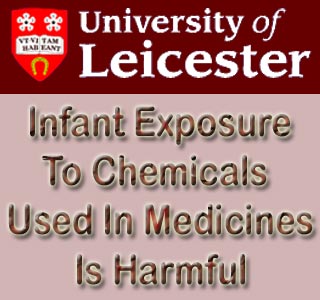
The researchers report on the presence of the non-drug ingredients (excipients) in liquid medicines that premature babies receive as a part of their medical care. They state that these chemical additions improve the medicines taste, absorption and even extend their shelf life, however these chemicals may prove to be harmful for the health of premature infants.
Lead researcher, Dr. Hitesh Pandya, Senior Lecturer in Child Health, University of Leicester and Consultant Pediatrician at the University Hospitals of Leicester NHS Trust, says that, “Babies and older children are often given medicines that have only received formal testing on adults, which means we estimate amounts that should be given to children and babies. There are numerous reasons for this, such as the practical problems in performing studies in very small babies, worries their parents may have about involving their child in drug trials and drug manufacturer’s reluctance to tackle the problem. Our study showed that more work needs to be done to tackle this problem and to improve our understanding.”
Co-researcher Dr. Andrew Currie adds that, “Parents should not panic about these findings. These chemicals can be found in foods all around the world. What the study highlighted is that we have a greater understanding of the side-effects of the drugs than we do of the chemicals that many of these drugs are mixed with; there just simply hasn’t been enough research done. It is often necessary that these chemicals are added to medications, and in the majority of cases it improves the way the drugs work, but we should be taking more of an interest in them and their effects. It is great news that Dr Pandya and his team will continue their research.”
It is stated that government laws have been introduced that may prompt drug companies to develop enhanced medications for babies. These researchers hope to converse with parents to permit their children to be a part of the drug trials conducted. They hope to address this worldwide issue and try to overcome it, for the betterment of the future generations.
The researchers conclude that parents should keep a check on the type of chemicals present in their child’s medication. However, they also should not panic overtly. The risk of using various medications will apparently be balanced in the cases when an alternative medication may not be available. They suggest medicine regulators to prompt manufacturers to label the type and amount of chemicals used in their product. They also hope that all the concerned parties to come forward and deal with this issue and try and overcome the risk involved in such criteria.
Their research is published in the Fetal & Neonatal Edition of Archives of Disease in Childhood.
